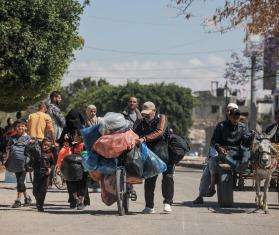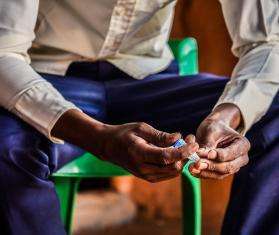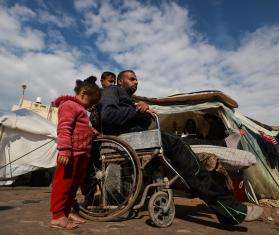EXECUTIVE SUMMARY
Context
Children as the most vulnerable patient group have been neglected for too long in tuberculosis (TB) treatment globally. Estimates for paediatric TB indicate it accounts for 10-15% of all tuberculosis cases in the 22 highest-burden countries and worldwide kills at least 130,000 children each year. Furthermore the numbers of children infected with drugresistant (DR) forms of TB are rising. The primary reasons for this serious neglect are that both diagnosis and treatment of TB in children are particularly difficult as appropriate diagnostic tools for children are lacking and no paediatric drug formulations are commercially available. Furthermore adherence to a long and burdensome TB treatment, especially in the case of drug-resistant TB, is strenuous for the child and the family.
The Pediatric TB Care Program
To demonstrate the provision of comprehensive TB care for children is feasible and that TB and especially DR-TB can be successfully diagnosed and ultimately cured, the Tajik Ministry of Health (MoH) and Doctors Without Borders/Médecins Sans Frontières (MSF) began a comprehensive paediatric TB care program in 2011.
Rationale and Intention of the Report
This report outlines the comprehensive model of pediatric TB care and presents the project experience in Tajikistan. Based on this experience it draws some conclusions and proposes some recommendations for scaling up pediatric TB care in the Central Asian and Eastern European region. It is intended to share experiences and lessons learned, highlight shortfalls and signpost opportunities to improve pediatric TB care and fully include children in National TB Programs.
Lessons from the pediatric TB program so far indicate that:
- To treat childhood TB effectively, a comprehensive treatment model is needed that includes the treatment of both DR and drug-sensitive (DS) TB and considers the entire family.
- Childhood TB needs to be diagnosed appropriately as early as possible, applying new diagnostic tools such as sputum induction, a rapid drug sensitivity test (DST) with GeneXpert as well as contact tracing.
- Early and comprehensive treatment needs to be provided that includes the compounding of pediatric drug formulations, systematic monitoring of side effects and their effective management, nutritional support and management of co-morbidities.
- The child and family need support to adhere to treatment and to minimize the negative impact that TB as a long-term disease can have on a child’s development. This includes psycho-social adherence support, a return to school as soon as a child is sputum negative, a shortening of the hospitalization phase and preferably ambulatory care.
Together MoH, MSF and TB partners in Tajikistan will continue to search for and develop better approaches to diagnose and treat TB in children.




